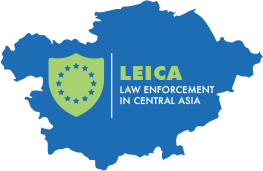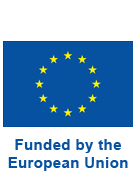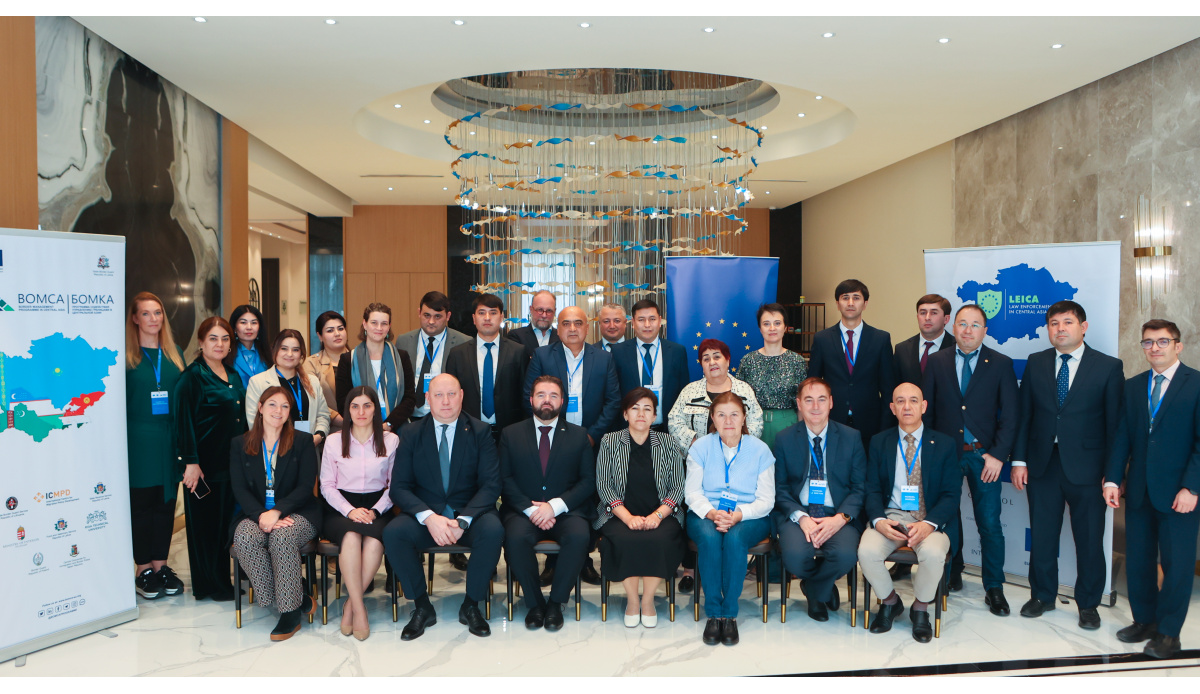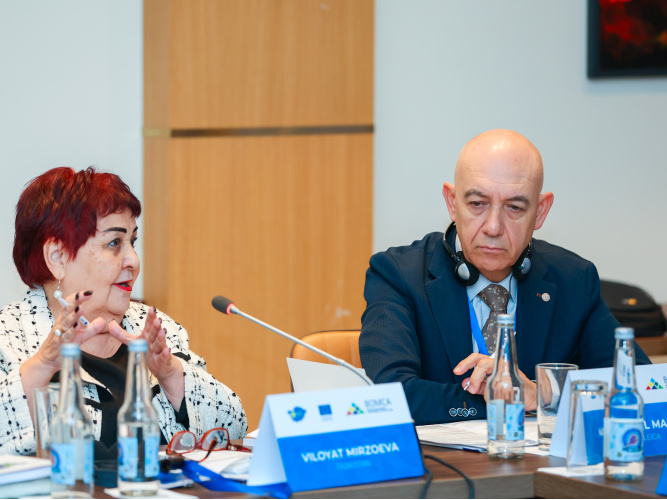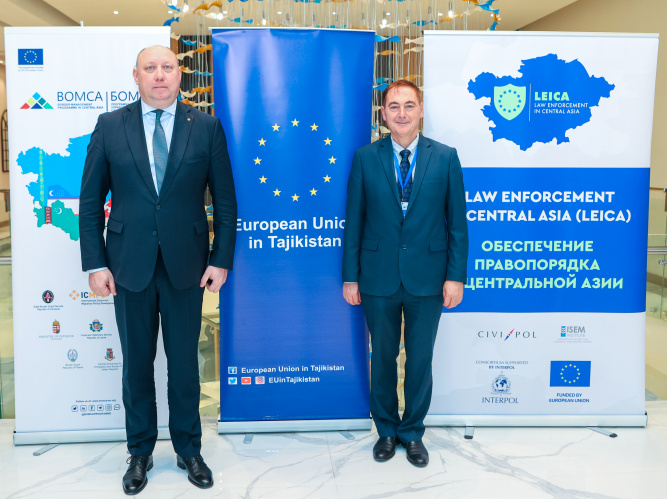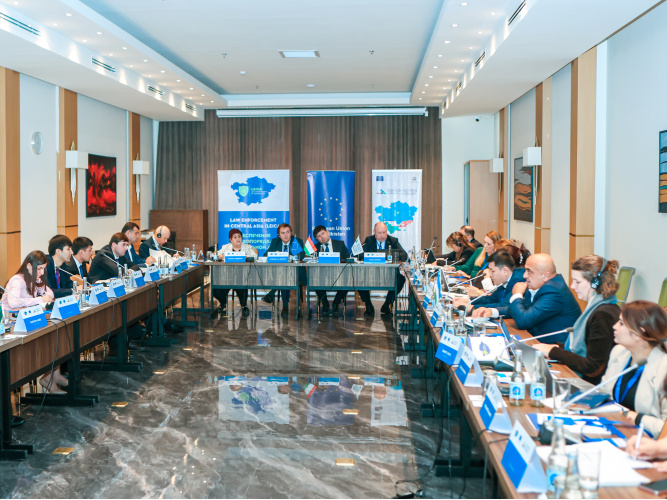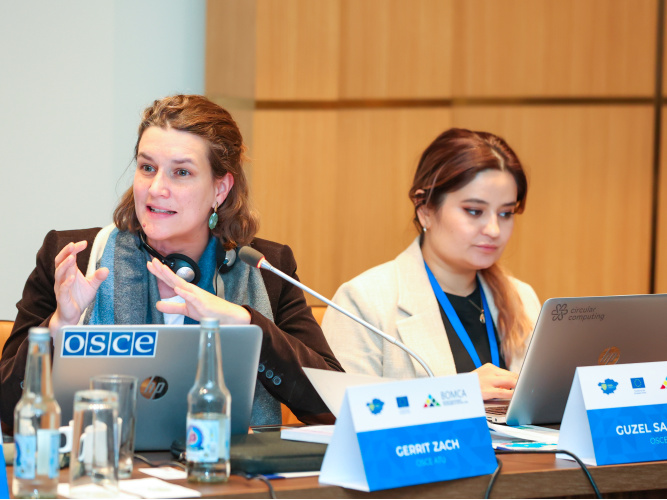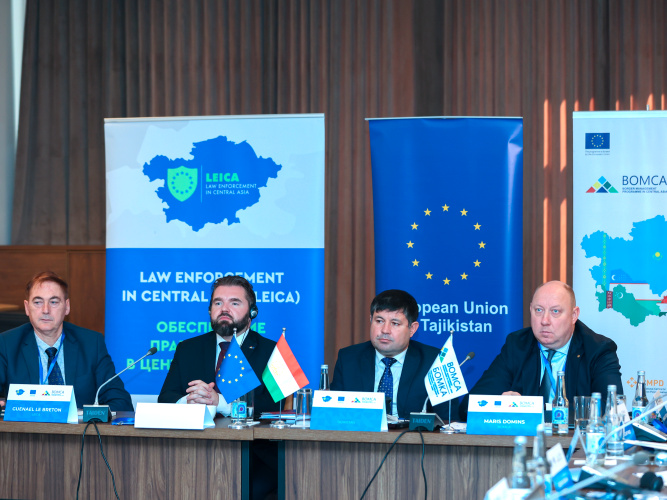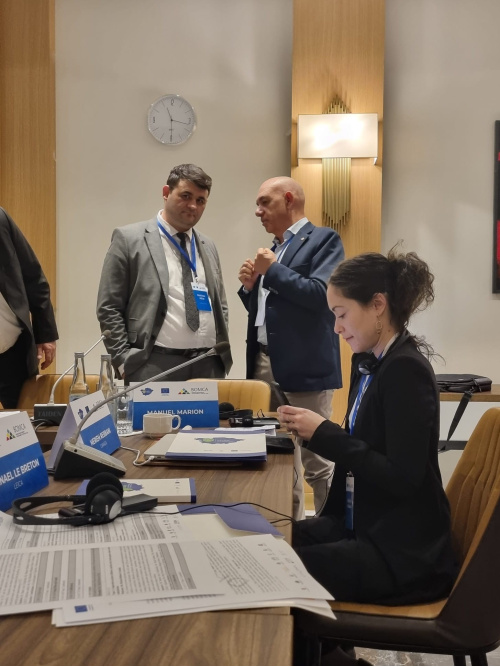22. 11. 2023
Police and Civil Society Protecting Children and Engaging Women against Violent Extremism
Some 35 participants, representatives of civil society and relevant government agencies from Tajikistan, Turkmenistan and Uzbekistan, and officials from the OSCE, UN, GIZ and other organizations, and international experts participated in the workshop “Law Enforcement Agencies Cooperation with Civil Society in the protection of Children and the Engagement of Women in Countering Violent Extremism (CVE)”. The workshop took place on 20-22 November 2023, and it was jointly organized by the EU-funded projects LEICA and BOMCA in Dushanbe (Tajikistan).
Early detection of radicalization is central to prevent violent extremism and terrorism. Law Enforcement Agencies, other relevant State agencies, and civil society organizations must work together to protect minors from extremist individuals and terrorist organizations that aim to manipulate hearts and minds of vulnerable people to recruit them. Women play an essential role and influence on countering radicalization, but sometimes their capacities are not fully considered, due to a biased traditional concept of their role in society.
Civil society organizations and independent experts who participated in this workshop shared lessons learned in the rehabilitation of children returnees from Syria and Iraq, and the challenges they faced. Their contributions made this meeting alive and productive. The discussions highlighted the different policies adopted by some countries in relation to the women returnees from war zones, which could be the subject of further research.
Several recommendations, stemming from the discussion, were highlighted in the closing session. They refer, inter alia, to gender assessment of CVE/CT strategies and action plans; the urgent need to providing experts to enhance cooperation between law enforcement and civil society in CVE; and to emphasize counter-narratives in the school curricula with concrete values like family and patriotism, and also tolerance and multiculturalism. The recommendations could be considered by policymakers, practitioners, authorities, civil society, and relevant stakeholders for contributing to a more comprehensive and effective approach to detecting and addressing radicalization, providing effective rehabilitation, and protecting vulnerable individuals.
The European Union-funded LEICA project is led by the EU Commission through a consortium that includes French CIVIPOL and Slovak ISEMI. The project is supported by Interpol.
